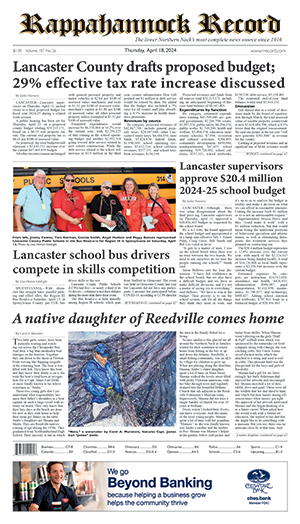As I write these lines, the world is watching the hundred thousand Russian troops on the Ukrainian border, anticipating orders from Moscow for an incursion designed towards achieving the re-aggrandizement of the former Russian state. The situation causes me to recall my days teaching Russian history, and what follows are a few thoughts about how in this instance the past might enlighten our thinking on the present.
“Two Romes have fallen. A third now gloriously stands. A fourth there cannot be.” These words were written by an Orthodox monk, the Abbot Philotheus of Pskov, in the 15th century addressed to the Muscovite ruler Ivan III.
Ivan was the first Russian ruler to term himself Tsar, and throughout the 43 years of his reign he concentrated on enlarging the territories of the Muscovite state. He drove the remaining Tatars back from all but the Crimea after two centuries of occupation, and he cemented his control over the imperial legacy in 1472 by marrying Sophia, the niece of the last Byzantine Emperor, Michael Palaeologus.
Philotheus’ statement on the two fallen Romes refers to the fall of the Roman Empire in 476, when the Germanic barbarian leader, Odoacer, deposed the last Emperor in the West, Romulus Augustulus, after which the Roman Senate sent the imperial regalia to the Eastern Emperor in Constantinople, the Second Rome, having been founded by the Emperor Constantine in the fourth century.
The Eastern Empire survived for almost another millennium, albeit continually losing territories until it fell, basically as a small Greek city state, to the Turks in 1453. Philotheus saw mystical significance in the medieval concentration on the number three, both in the Christian Trinity and in Jesus Christ having died at age 33, thus three was the perfect number.
Going forward from the time of Ivan III, the Muscovite state continued its expansionist policies, reaching a notable high point during the reign of Peter the Great, who in the eighteenth century proclaimed himself Emperor of All of The Russias, and continued later in the same century by Catherin II, the so-called Great, who drove the Tatars out of the Crimean Peninsula in 1783. Her son, the Emperor Paul I, even claimed to be the Grand Master of the Order of Malta, after the fall of the Maltese archipelago to Napoleon in 1798, perhaps hoping thereby to get a foothold in the Mediterranean Sea.
In the 20th century, the imperial legacy came to an end during the First World War with the two Russian Revolutions of 1917. The first, in March, ended the monarchy, and the second, in November, brought Lenin and the Bolsheviks to power. Thereafter, for 74 years, the Russian state, which became the Union of Soviet Socialist Republics, although an officially atheistic state, continued the imperialistic policies of the Tsarist period.
During the period of Soviet hegemony, under Lenin and Stalin the imperial rule spread into Eastern and Central Europe after the Second World War, ultimately being blocked, in Winston Churchill’s term, by the Iron Curtain, stretching from Stettin in the Baltic to Trieste in the Adriatic. That situation came to an end in 1991 with the fall of the Soviet Union, being replaced by the mythological Commonwealth of Independent States.
The collapse ended Soviet Russian dictatorship over its member states, but what has ensued has been a period, highlighted by the reign of Vladimir Putin, of pulling the entities back under the Russian umbrella. He has effectively come to control Belarus, has retaken the Crimean Peninsula from Ukraine, and now is hovering on the eastern border of Ukraine.
The last three decades have formed the longest period of Ukrainian independence since the 13th century. In America our modern understanding of Ukraine may be attributed to the late economist, Professor Lev Dobriansky of Georgetown University. His vision of the breakup of the Soviet Union without bloodshed came to fruition, but the newly independent states have been fragile in establishing their own freedom from Russian domination.
The Soviet Union based itself on the policy that it could fight, win and survive a nuclear war. The Chernobyl explosion of 1986 proved that it could not even cope with a nuclear accident. In the present state-of-affairs, we must wait to see if Ukraine can itself survive as a free and independent state.
These ruminations will continue in next week’s item.











